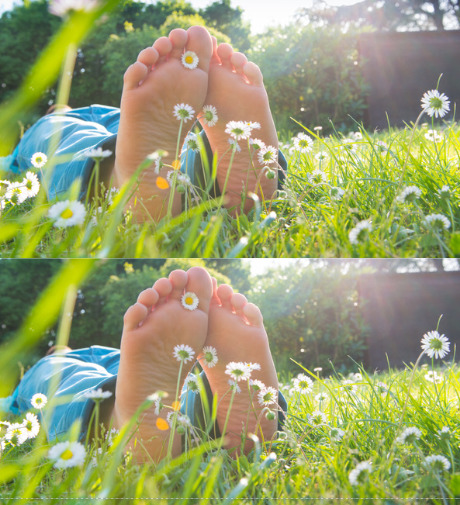Summer Heat, Summer Feet: Common Foot Problems
Summer brings heat, and heat brings a range of foot issues. Several typical foot conditions that cause pain and discomfort can be brought on by sweaty feet and outdoor activities, including toe and foot fungus, blister, hotspots, and swelling.
Minor foot problems are common in the summertime, but you can prevent them by taking necessary actions. Happy feet can beat the heat!
Common Summer Foot Issues
Let’s take a look at summer’s most common foot issues and how to avoid and treat them:
-
Toe and Foot Fungus
Fungus ideally grows in a warm, damp environment. In the summer, we tend to stroll barefoot and our feet get hot and sticky. This renders feet particularly susceptible to fungal infections because many types of foot fungus are very infectious. An indication of toenail fungus is a toenail that is discolored and damaged. A podiatrist can assist in identifying the exact type of toenail fungus, the best treatments, and whether a procedure is required. It is advisable to begin treatment as soon as you suspect you have toenail fungus to prevent the illness from spreading to other toes.
Athlete’s foot is a common foot condition brought on by a fungus and causes dryness and itching. For diabetics, other fungal infections of the feet, such as yeast infections, can be quite problematic. Diabetes-related poor circulation frequently results in foot ulcers and injuries that take a long time to heal, and these wounds are susceptible to fungus infections. Foot fungus thrives in conditions with high blood sugar and perspiration on the feet.
-
Blisters
When the skin on our feet is exposed to friction, blisters develop. Blisters are more likely to form when our feet are hot, sweaty, and swollen, which is more common in the summer. The best way to prevent blisters is to wear well-fitting shoes and quality socks, and to treat hotspots as soon as possible to prevent them from developing into blisters.
-
Hotspots
Hotspots are areas of our feet that feel “hot” and are frequently felt during exercising, such as walking, jogging, or cycling. They must not be disregarded! They are the first indication that your feet are being hurt by pressure or friction. Making sure your shoes fit properly and that you have the proper arch support insoles will typically prevent hotspots. Additionally, moisture-wicking socks can keep your feet dry and prevent hotspots from forming from rubbing.
-
Swelling
Summer heat results in the small blood vessels in our feet to expand. It is our body’s natural way of cooling itself off, but it can cause problems. If your feet swell, your shoes fit differently—which may lead to hotspots and blisters.
Avoiding heat and elevating your feet is sometimes the basic way to lessen the swelling. However, if your foot swelling is already bothering, it’s critical to see a podiatrist to make sure the problem is treated. Depending on your condition, the podiatrist may suggest medication and exercise, as well as modification to your diet.
Are you suffering from any foot condition? At The Chelsea Clinic, we can help. One of our podiatrist can assist and then recommend what treatments are best to get you back on track.  Podiatrist South Kensington
Podiatrist South Kensington
Schedule an appointment here or you may call us at +44 (0) 207 101 4000. 
We hope you have a feetastic day! 

-The Chelsea Clinic and Team
Learn more about Fungal Nails


 Podiatrist South Kensington
Podiatrist South Kensington




